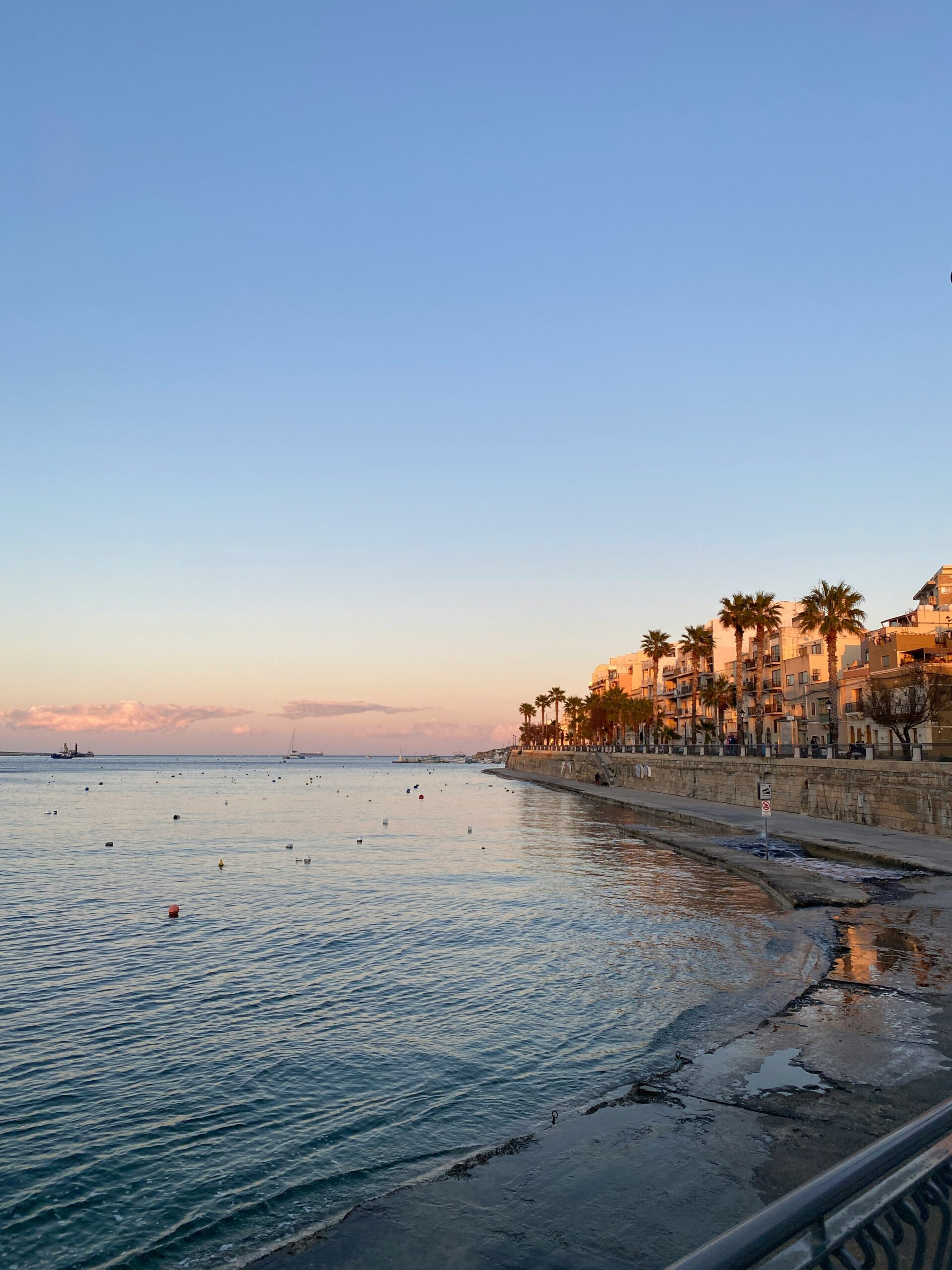I always get the question “what are the best tax countries for digital nomads?”. Unfortunately, there is no one-size-fits-all when we are talking about countries with good tax arrangements for digital nomads.
Therefore, we’ll have a look at different options by presenting ten countries which are attractive for digital nomads from a tax perspective. However, but first let me tell you that just moving to a country with a good tax rate might not cut it for you…

WARNING: Moving to a Country with the Best Tax Rate Might Not be Enough for a Digital Nomad
Considering moving to a country with a low tax rate is a start. Yet, we need to make some remarks in this respect.
First of all, when people speak about a low tax rate, they mainly focus on income taxes. However, this is only part of your overall tax burden. As a private individual, you will also need pay social contributions on your professional income. This could increase your overall tax burden very badly. If you think about setting up a company, most people focus on the corporate tax rate. Yet, if you take out money from your company as a dividend, you also need to pay withholding / dividend tax. Again, it’s important to look at the bigger picture.
Apart from your total tax burden, you also need to be aware of the rules regarding tax residency in these best tax countries for digital nomads. Because in order to become a tax resident in a place with an interesting tax regime, you need to make sure you fulfill the conditions to become a tax resident there. In some countries you will need to stay for 183 days to become a tax resident while in other countries not. This is definitely important if you don’t plan to settle down somewhere and you don’t want to limit your freedom to travel.
Finally, you also need to take into account your lifestyle. If you like to spend your free time surfing, you probably don’t want to setup tax residency in a landlocked country where you need to 183 days per year. If you can’t stand the heat, going to a place like the United Arab Emirates might not workout so well for you. Setting your budget is also part of this exercise. Some countries are more expensive than others. So, apart from the more objective criteria like tax rates and requirements for tax residency, you need to be aware of your own preferences. This might sometimes also mean you have to compromise in one way or another.
Best Tax Countries for Digital Nomads: The Top 10 Countries to Move to
Now we will have a look at a list of the top 10 best tax countries for digital nomads to move to. I have put the list in alphabetical order because it’s impossible to actually rank them. The reason is that it really depends on your personal and professional situation which option is best for you. We will focus mainly on the tax side of things. Countries like Portugal and Greece are also very popular but they are not very tax-friendly.
Please note that the personal income tax and social contribution rates we mention are for freelancers. The rates for employees could differ from the rates mentioned here. Furthermore, in that case additional taxes might apply to the employer as well.
Albania
Albania is attracting more and more digital nomads. I am expecting in to get even more popular now Bulgaria and Romania joined the Schengen Area. Digital nomads without a European passport will need to start looking for alternative countries to ‘reload’ their Schengen days. Albania can be one of the countries benefiting from this.
Furthermore, many nomads will like the fact that Albania is still quite affordable as the cost of living isn’t so high compared to many other places in Europe. Furthermore, like many other countries in Eastern Europe and the Balkans it has good internet infrastructure (1).

- Requirement for tax residency: No need to stay 183 days but other conditions apply.
- Personal income tax rate: As a freelancer, you can currently still get an exemption from income taxes up to an income of 14 million LEK (~€120k). You can read the details in this article about having your tax residency in Albania.
- Social contributions: 26,4% but with a maximum of around €450/month.
- Corporate income tax rate: The general corporate tax rate is 15%. However, the same exemption as for freelancers exists. Furthermore, some industries enjoy a lowered tax rate of 5%.
- Withholding / dividend tax: 8%
- Digital nomad visa: Yes, here you can read all the details about the Digital Nomad Visa Albania
- Digital nomad community: Albania has some places with nice and growing digital nomad communities. You’ll find most of them in the capital Tirana and in the coastal city of Sarandë in the south.
Bulgaria
Bulgaria isn’t very well known by the broader public. However, many nomads will know Bulgaria as an attractive destination. It offers great weather in summer for those who want to spend their time outdoors. And, in winter you could go there for some winter sports. Although Bulgaria has also known his fair share of inflation, it’s still an affordable place to go to with a great digital nomad community. Another main reason many nomads go to Bulgaria is for its attractive tax rates at which we’ll have a look now.

- Requirement for tax residency: No need to stay 183 days but other conditions apply. You can read all the details in this article about tax residency in Bulgaria.
- Personal income tax rate: A flat 10% income tax rate.
- Social contributions: 27,8% but with a maximum of about €530 per month.
- Corporate income tax rate: Just like the personal income tax rate, the corporate income tax rate is 10%.
- Withholding / dividend tax: 5%
- Digital nomad visa: Bulgaria currently doesn’t have a digital nomad visa. However, there are rumors that one will be launched in the future.
- Digital nomad community: Bulgaria has been a favorite for nomads for a while. Bansko is for example one of those place (and a personal favorite)!
Cyprus
Many nomads like the island of Cyprus for its great climate. Furthermore, what many people don’t know is that Cyprus isn’t part of the Schengen Area. That means that the days you spend in Cyprus, don’t count for your Schengen balance. Therefore, it can be one the places to go to in between your visit to Schengen countries.

- Requirement for tax residency: You can become a tax resident of Cyprus by just spending 60 days there. However, some conditionals apply.
- Personal income tax rate: Cyprus applies progressive income tax rates up to 35%.
- Social contributions: The current rate is 15,60% but this rate will slowly increase the coming years to 20,40% in 2039. For directors of a company the total rate is 26%.
- Corporate income tax rate: 12,50%; for this reason Cyprus is mainly interesting to set up a company and less to register yourself as a sole-trader (to which the progressive income tax rates apply).
- Withholding / dividend tax: 2,5%
- Digital nomad visa: Yes, here you can read more about the digital nomad visa for Cyprus.
- Digital nomad community: Cyprus is having a thriving digital nomad scene.
Czech Republic
The Czech Republic, and mainly the capital Prague, is quite popular with tourists. However, it also offers nice opportunities for digital nomads.

- Requirement for tax residency: No need to stay 183 days but other conditions apply.
- Personal income tax rate: The Czech Republic applies a rate of 15% up to an income of 1.5 million CZK (~€59k). Income above is taxed at 23%. However, a specific regime for freelancers apply where they get a lump sum cost deduction of 60%. In that case, your overall tax rate including social contributions is around 13% up to an income of around €85k. You can read all the details in this article about tax residency in the Czech Republic.
- Social contributions: See above.
- Corporate income tax rate: 21%
- Withholding / dividend tax: 15%
- Digital nomad visa: The Czech Republic has a specific digital nomad visa for IT professionals from just eight countries. However, you can also apply for a residency permit by setting up your business there as a freelancer.
- Digital nomad community: If you don’t mind living in a busy and touristy city, you will definitely find your liking in Prague.
Georgia
Georgia has a program called ‘Remotely from Georgia’ with which it tries to attract digital nomads to come to the country. Apart from that, it also offers some tax incentives.

- Requirement for tax residency: You will become a tax resident of Georgia after spending 183 days there. However, an exemption can apply for High-Net-Worth Individuals if they want to become a tax resident of Georgia while spending less time there. You read more about it in this article about tax residency in Georgia for digital nomads.
- Personal income tax rate: Georgia has a flat 20% personal income tax rate. However, Georgia applies a territorial tax regime due to which foreign income isn’t taxed. Furthermore, there are some specific tax regimes for entrepreneurs where you can pay taxes as low as 1%. You read more in the article linked before.
- Social contributions: Georgia doesn’t levy any social contributions.
- Corporate income tax rate: 15% and the tax is only due once profit is distributed. So, as long as you keep the money in the company, no tax is due.
- Withholding / dividend tax: A 5% withholding tax applies to dividends paid out by a Georgian company.
- Digital nomad visa: technically Georgia does not offer a digital nomad visa, but many people to stay in the country for one year.
- Digital nomad community: Georgia and mainly Tbilisi have a thriving nomad community where you won’t get bored easily.
Malta
Just like Cyprus, Malta is an island in the Mediterranean Sea which attracts a good amount of digital nomads.

- Requirement for tax residency: Malta will mostly require you to stay 183 days in the country to become a tax resident.
- Personal income tax rate: Malta applies progressive income tax rates. The lowest rate is 15% as from an income of €9.100. The highest rate is 35% which you reach once you make more than €60.000.
- Social contributions: The social contributions for self-employed individuals are 15% with a maximum of €78 per week. However, most people opt to set up a company and receive a remuneration as a director. As a director you are considered an employee. Consequently, both your company and yourself will need to pay 10% in social contributions each. However, also here a weekly maximum applies from €52 and €104 per week.
- Corporate income tax rate: The corporate tax rate in Malta amounts to 35%. However, if you pay out a dividend, you can ask a refund for 6/7th or 30%. This brings the actual corporate income tax rate to 5%. That makes Malta the country in Europe with the lowest tax rate for digital nomads.
- Withholding / dividend tax: There is withholding tax on dividends.
- Digital nomad visa: Yes, you can read all details about the digital nomad visa Malta in my article.
- Digital nomad community: Malta does attract in international public although it’s probably not as popular as its big brother Cyprus.
Malta also launched a website with information specifically for digital nomads.
Paraguay
Many digital nomads see Paraguay as the holy grail for their tax setup. Let’s have a look why this is the case.

- Requirement for tax residency: Once you get your residency card in Paraguay, it’s easy to apply for a tax number and become a tax resident. There are not strict conditions to become a tax resident.
- Personal income tax rate: The personal tax rate in Paraguay is 10%. However, Paraguay applies a territorial tax regime which means you only pay taxes on your local income. With the right structure this means you can avoid income taxes all together. You can read more about it in my article about tax residency in Paraguay for digital nomads.
- Social contributions: Social contributions are optional in Paraguay.
- Corporate income tax rate: The corporate tax rate is also 10%.
- Withholding / dividend tax: Local dividends are taxed at the general rate of 10%.
- Digital nomad visa: Paraguay doesn’t have a digital nomad visa but it’s rather easy to get a residency permit.
- Digital nomad community: Most digital nomads use Paraguay for their tax residency but don’t necessarily spend too much time there. However, because of these tax advantages, more and more nomads are exploring Paraguay.
Romania
Romania is one of these countries in Eastern Europe and the Balkans which has long been underestimated. However, it offers a great diversity in landscape and great internet infrastructure. All of this, still at a decent cost of living.

- Requirement for tax residency: No need to stay 183 days but other conditions apply.
- Personal income tax rate: Just like its neighbour Bulgaria, Romania applies a fixed tax rate of 10%.
- Social contributions: Social contributions amount to a total of 35%. However, the maximum contributions due are equal to around €4.100.
- Corporate income tax rate: The basic corporate income tax rate is 16%. Nevertheless, Romania offers a specific regime for micro companies whereby you pay a 1% tax on your revenue. Yet, as always some conditions apply which you can read in my article about setting up tax residency in Romania.
- Withholding / dividend tax: Dividends are taxed at a rate of 8%. Although, if the total amount of dividends exceed around €3.600 an additional social contribution of 10% applies.
- Digital nomad visa: Romania does have a digital nomad visa and even made it to the list of best digital nomad visas in Europe.
- Digital nomad community: Many Romanian cities have a thriving digital nomad community.
Thailand
Thailand is one of these hotspots in South East Asia for digital nomads. Bangkok, Chang Mai, Ko Pha Ngan, Ko Lanta, Krabi,… All places where you have probably been or at least you know someone with exciting stories about these places. Compared to Western standards, all of these places are also really affordable. This means you can live like a king or queen on a small budget. Add a nice climate to the mix and you might just have your ideal spot. But what about taxes in Thailand?

- Requirement for tax residency: In order to become a tax resident of Thailand you need to spend 180 days in the country.
- Personal income tax rate: Thailand applies progressive income tax rates. These start at 5% if you make more than around €3.800 per month and go up to 35% if you earn over around €130.000 with different rates in between. However, the interesting part is that Thailand applies a territorial tax regime due to which you only pay taxes on the money you bring into the country. Basically, your tax rate will depend on your lifestyle. You can read the full details in my article about tax residency in Thailand.
- Social contributions: If you don’t work for a local employer, social contributions shouldn’t apply to you.
- Corporate income tax rate: 20%
- Withholding / dividend tax: The withholding tax for dividends from a Thai company are 10%. However, because of the territorial tax regime, this doesn’t apply to foreign dividends.
- Digital nomad visa: Thailand does offer a digital nomad visa. Unfortunately, the requirements are rather strict. Nevertheless, I made a visa guide for Thailand in which you’ll find an overview of the visas which are available.
- Digital nomad community: As mentioned before, Thailand has many places which are among the most popular places worldwide for digital nomads.
United Arab Emirates
I don’t think there is any nomad who hasn’t heard yet about the tax-free life in Dubai. Dubai is one of the emirates of the United Arab Emirates of which none levy personal income taxes.
In order to steer away from oil, Dubai wants to attract people and businesses from all over the world. And this also applies for digital nomads.

- Requirement for tax residency: There are three ways to become a tax resident of the UAE. However, if you want to obtain an international tax residency certificate to protect you from taxes in other countries, you will need to stay 183 days in the country. You read more details in my guide on becoming a tax resident of the UAE as a digital nomad.
- Personal income tax rate: The UAE doesn’t levy any personal income taxes. However, if you are a freelancer, you are subject to the corporate income tax rates if your revenue exceeds AED 1.000.000 (~€250.000).
- Social contributions: Just like personal income taxes, there are no social contributions due.
- Corporate income tax rate: In 2023 a corporate income tax of 9% was introduced for income above AED 375.000 (~€95k).
- Withholding / dividend tax: There is no withholding or dividend tax in the UAE.
- Digital nomad visa: The UAE does offer a tax free digital nomad visa.
- Digital nomad community: Dubai has a huge expat community as most people living there are foreigners. Yet, the digital nomad community as such is not necessarily huge.
The Real Way to Save Money on Taxes
The real way to save money on taxes is not just to pick the country with the lowest income tax rate. You need to take into account which tax system suits you. Furthermore, you want a country that also fits in with your lifestyle.
If you want to know which options are best for you, reach out to me! I have helped more than 100 digital nomads saving thousands and thousands of euros on their taxes per year.
